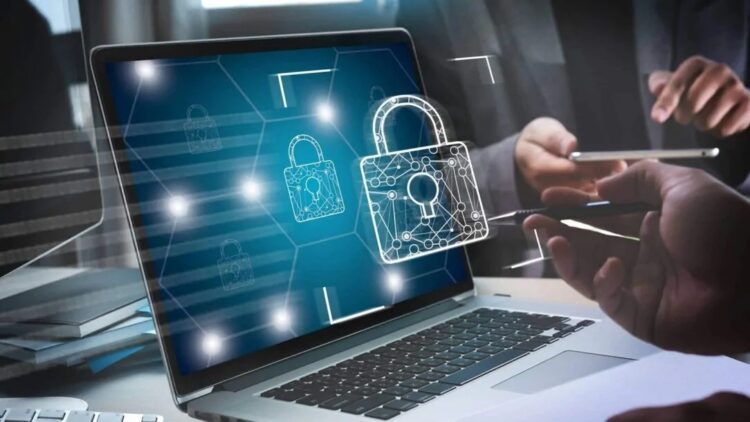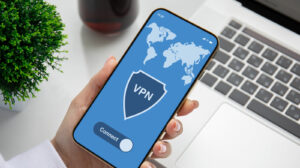Keeping your Internet Connection safe is vital for maximizing your online experience. Learn how to check it for safety.
The internet is a gateway to the world wide web that transcends the physical world’s limitations by linking individuals. Unfortunately, not everyone online has good intentions, and some use the same network to wreak havoc on innocent users.
Unless effectively protected, network connections are typically the primary instruments of hackers. Once inside, they can exploit internet-connected devices in various ways, including stealing data and launching cyberattacks.
Securing your connection is critical if you do not wish to become a victim. And the good news is that there are multiple ways to accomplish this. These modifications may appear modest, but they prevent unauthorized access to your network. Here is how to check if your Internet Connection is secure to have peace of mind.
How to Keep Your Home WiFi Safe from Hackers
How to Check if your Internet Connection is Secure?
There are 2 methods to determine whether you are vulnerable, but neither reveals if a security compromise has occurred. On the other hand, you will realize how simple it is for malicious users to access gadgets.
First, you should add a new device to the network that was not previously connected to the internet. In a perfect world, you must enter a password, indicating that the connection is closed and secure. If this is not the case, anyone can log in and do anything they choose.
The second step is to ensure that your router is secured. Enter the IP address at the bottom of the device into your browser’s search bar. A login screen will display; are you seeing it for the first time?
If so, the default password is likely stored on the router. The issue is that manufacturers use the same login information for numerous models. A hacker can immediately access the router’s settings and alter them to their advantage by locating the password on the company’s website.
How can I Secure my Internet Connection?
Secure Your Home Wi-Fi Network is essential for online safety and device integrity. Moreover, protection can be enhanced in many ways. Several of the most effective strategies are discussed here.
Use strong passwords
At this point, everyone is well-versed in the importance of using only robust passwords. However, it is solid advice that a surprising amount of individuals disregard because it is more convenient to use a small number of passwords.
Your password is the first security line against hackers, so you should improve it. Better still, let a password manager create and remember your passwords.
These convenient apps, such as NordPass, are effectively digital vaults secured by an unbreakable cipher. They save login information and assist with the generation of secure passwords based on the standard recommendation of 16 characters, random symbols, lowercase and uppercase letters, etc.
Use a VPN
Secure Internet Connection VPN – Virtual Private Network is a tool that safeguards the entirety of your Internet connection. Everything you do online, including your identity, is concealed by 256-bit encryption.
Then, no third parties (or snoopers with bad intent) will be able to watch your actions or use this information against you. In addition, your IP address is concealed so no one can monitor your precise location.
Some top VPNs, like NordVPN, have additional features, such as a no-logs policy, which helps preserve your privacy and circumvent internet censorship efforts. And because the majority of providers are compatible with the most prevalent operating systems, you may encrypt nearly all of your devices.
Change your DNS
The Domain Network System (DNS) stores the IP addresses associated with numerous domain names (ex., facebook.com). Typically, each network is assigned its DNS server by the Internet Service Provider (ISP).
The issue with default DNS servers is that they are frequently inadequate in speed and security. Not all ISPs bother to keep them up-to-date or use security mechanisms that would prevent DNS requests from being monitored.
We recommend switching to third-party DNS servers instead. Currently, OpenDNS and Google Public DNS are the two most popular options.
Turn on Encryption
By modifying your router’s settings, you can further safeguard your connection. You must take advantage of the standard built-in encryption capabilities on these devices.
- Enter your router’s IP address into the browser’s search box and login
- Find the Security options in the menu.
- Find the WPA2 Personal setting and switch the encryption type to AES
- Enter a password – you must type it in whenever a new device connects to your network.
Change Default Router and Wireless Names
Unfortunately, every router has generic names that betray the manufacturer and model number. Further, hackers can have a field day with this, as it reveals a great deal about your Wi-Fi router setup.
Changing the default network name to something that cannot be used against you is in your best interest.
- Log into your router’s settings
- Go to the Wireless tab
- Look for the SSID field, which contains your network’s name, and enter a new one
- Tap Apply, and you are done
Other Online Security Tips
There are countless additional ways to protect yourself online. Antivirus software, ad blockers, multi-factor authentication, firewalls, and secret search engines are merely the top of the iceberg.
ALSO SEE: Send Fax from Gmail
And you want to do as much as possible, especially in modern times when anyone can be a target. Therefore, we also recommend the following:
- Keep all software current, as new patches typically address security vulnerabilities.
- Double-check the sender’s credentials and never blindly click on a link to avoid phishing efforts.
- Look for HTTPS & the padlock symbol next to the URL while browsing.
- Public Wi-Fi networks lack even the most fundamental security measures and are easily exploitable.
Conclusion
Anyone with the proper equipment and a small amount of knowledge may break into your network and use it for their benefit. Therefore, it is essential to safeguard your Internet Connection immediately. And the key is to establish a multilayered defense system instead of relying on luck alone.
Implementing and sustaining the use of password managers, VPNs, antivirus software, and similar online security tools is simple. Use this to become practically invulnerable to cyberattacks.





